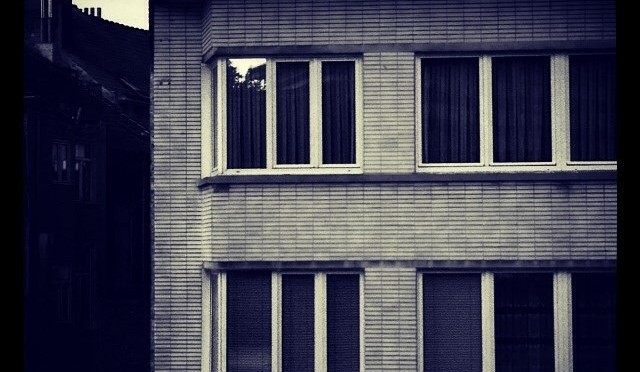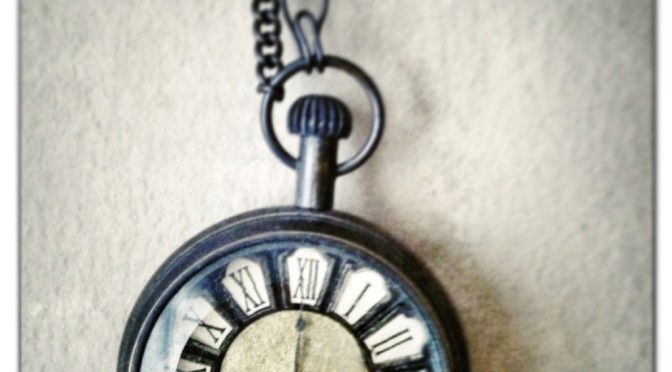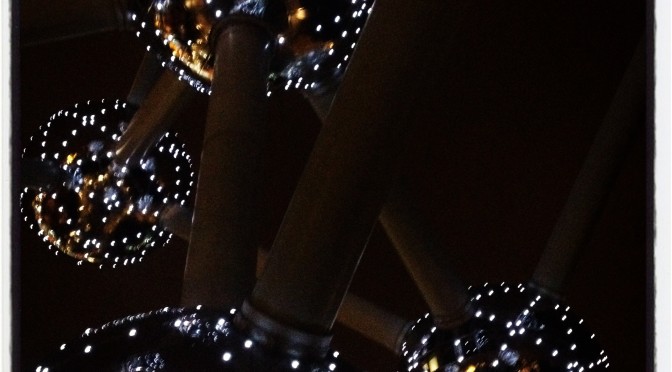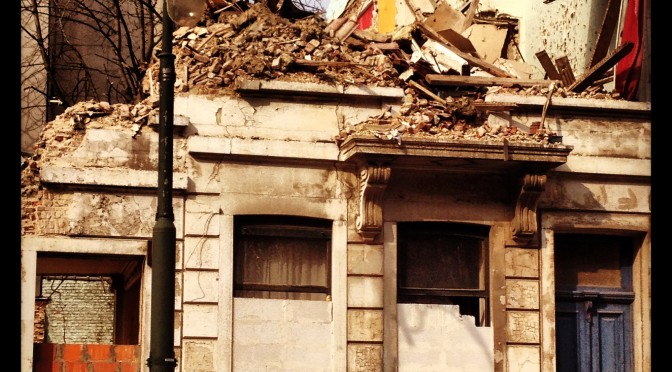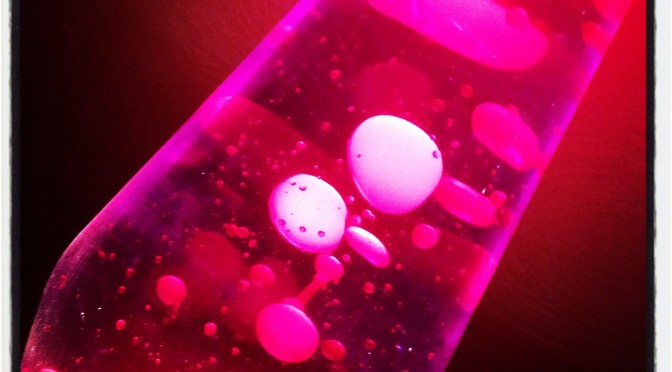So, it’s all going off now.
Post-interview, he was deflated. He had been talked up so well, made to look as if he was striking out on his own, showing serious with regards to his direction. With strong-armed strokes the interviewer had made him sound like an olympic swimmer. Huh, freestyler more like. Now, after treading water for an hour or so, he was short of breath (understandably, he’d have said) and he felt the pull of underwater gravity from the bottom of the pool, or lake, or ocean – or wherever he was. And do you know, he could hear it too; he could hear its gurgling voice, and it was saying to him, keep your feet still, my friend, keep still and try, just-try-go-on-you-know-you-want-to, try breathing underwater. Yet there was a niggling cold breeze in his face, colder since his face was wet, that seemed to be desperately trying to remind him of something, with every breath stronger and colder, something like oxygen, he thought, and also, more rarely, solid ground. It had convinced his brain to develop the minor but now unerasable doubt that he would not have gills when he thought he would.
Now, just now, it changed.
He wasn’t alone after all. Just a little deaf. He was, in fact, and he noted it with comfort, utterly engulfed by voices, all these heads making noises around him. He relaxed slightly, and began to tune in to the sounds of the voices, but no sooner had he done so, than he realized, with terror and a wave of panic, that each head was screaming and cackling and growling, at him – or perhaps not. The shock of it sent his mind dive-bombing, and he stuck his head under the water, with only his eyes above the surface. He bubbled out a sigh of relief. Now, with his ears filling with water, the voices were muffled. He toyed with the idea that the voices were the water: each head a separate molecule of H2O combining to form a liquid mass (something, he thought drily, that would surely have been an unforgivable contradiction in long ago chemistry classes at school). A pulsing movement of the waves uncovered his ears for a few seconds and the cackling came back and with it the panic again that these molecules were trying to drown him.
We will be our own downfall.
He felt like yelling it out, like those lonely and insane evangelical street preachers in the middle of a busy Saturday shopping afternoon. As far as he could see, it was the pre-condition for the evolution of the human race: whichever bio-chemically minded spirits had invented the processes by which we evolved, laid it down right at the beginning in the not-so-small print of the contract that (and he was quoting here, as well as he could remember) you, the human race, will all be so filthy, self-loathing, selfish, greedy and ruthless that we, masters of the universe and much more beyond your puny comprehension, will only allow you to originate and flourish if you guarantee that self-destruction is on the cards at some future point. And we grew, we evolved, we developed so much that we decided we were godly enough to break the pact. The contract, he believed, went up in ashes with the eruption of Mount Vesuvius and is scattered, unrecoverable, over the petrified people of Pompeii that day. For two thousand years we lived in breach of said ancient contract, and only now were we beginning to realize, with mushroom clouds above our heads and scorched flesh seeping with poisonous pus, that we were on borrowed time. Without intending to, we were remaining honourable to those democratic otherworldly beings that granted us life.
A contraction in his chest made him breathe in sharply, but his mouth was too close to the water and he began to choke violently. The human body is actually the most delicate of machines, he thought, and so temperamental. It is open to all sorts of invasions, both physical and intellectual, and the slightest foot wrong could expire any one of us forever like the quiet puff of the genie disappearing back into the depths of his brass lamp. One knife twist too hard, he continued, spitting water, one reckless exertion of pressure too strong around the neck, one tiny trauma leaving the mind open, if just a crack, to another world where everything is backwards or upside down or inside out, and we are a terminal case. Likewise, one gulp too many of the H2O voices and your heart starts beating faster. Your lungs start to cry out for the air they crave, a cry that grows slowly quieter as it is drowned out. Like his was now. He could feel his ribcage bursting with irregular rhythms and it might have been the start of the end. He looked around frantically for that flash of red that would indicate the lifeguard, but it was all blue.
His head dropped a little then, and he could see the bottom for a second. But it was blurred, because of some scarlet cloud seeping around his body.
Hang on a second, he was thinking, now just wait one second there sonny boy – it’s red.
And then he understood: he was the lifeguard. And this was all just a test, of character, of loyalty and respect. At first the thought occurred to him that he wasn’t doing a very good job of it. The red cloud was spreading further, and with closer examination, ribboning from his wrists in Roman fashion. Oh, the shame, he thought with embarrassment, the utter shame of tomorrow’s headlines – The Lifesaver Who Couldn’t Save Himself. He tried to recall his training, but in vain, because he’d never had any. Then, with a lift of his head that required elephantine effort, he saw that the heads from which all those voices came weren’t in need of saving.
Again his head dropped below the surface for a few moments and he saw in liquid. His frenzied fingertips searched for the gills on his neck that would save him, but there were none. He arched his back, and air came again to his lungs. Sickness swept over him, lemon flavoured bile to mingle with the blood, but he pushed it down.
You will be the one to say.
Now he’d got his bearings, he stayed motionless for just a fraction of a second less than would cause him to drown, waiting for the flash of inspiration that would save him. None came. In a sudden moment of desperation he embarked on an attempt to drink himself safe, but only succeeded in mixing with the bile and the blood the bitter flavour of those malevolent H2O molecules, and their mocking and ridicule and destruction of his conscience finally brought the vomit out into the open, now forming a floating sunset of yellow and orange with the streams of his blood.
He watched in sorrow and self-pity as the sunset washed away. He was getting weak now, those wounds slowly spilling more blood than his body could function without. The voices, the mocking, they had died down to a hush of whispers and mumblings, an irreverent half-silence that waited with greedy anticipation for his demise. He wanted to give these heads a parting shot, if he was going to go.
This was no pool; he’d established that when he’d tried to breathe underwater – the bottom was not tiled but rather more fleshy than he’d liked to notice, and clouded by the red of his blood. Neither was it a lake: he could see no horizon, nor any shore. And it wasn’t ocean – the water was bitter, empty; but it did not taste of salt.
But in a removed way he couldn’t fathom, even though he could sense its debilitating anger and the throbbing of its malice, without realising it, he was immune to the damage it could undoubtedly inflict upon his increasingly weakening body. He could not feel. He assumed this was almost the end, the numbness brought about by the loss of blood, the final stab at pity from his maker. He lay back on the surface of the water, floated. The voices had gathered round him in a circle now, were urging him on quietly to get on with it, put himself out of his misery. He closed his eyes, waiting for the end.
And then, as if gravity itself had failed for a second, he felt his very being drop out of him, bounce off the bottom, and re-enter his body with a momentum that carried him upwards. His eyes had opened with the shock, and he saw that finally the voices had gone, leaving him in peace to die. Then there was a swirling motion, not in his stomach but his entire body, as if someone had let the plug out. He was being sucked down with the receding, revolving water. He curled himself into a ball as best he could, foetal as at the beginning of life, protecting his weakened body from the walls as the water rushed and careened him to an unknown destination.
A stab of recognition struck him in this diminished state. Had he been fully conscious he would have called it déjà vu. The power of sensation had returned, but again, it was removed from him; the searing pain of another was vested in him, but was far deeper than the flesh. The walls were closing in, suffocating him. When he saw light it was almost expected. Pushed through the opening by an unseen force, almost out of air, he gasped, breathed, sobbed, and heard the familiar and comforting sound of his mother crying for her newborn son.
‘Re: Incarnate’ was published in This Is It Mag, June 2005
